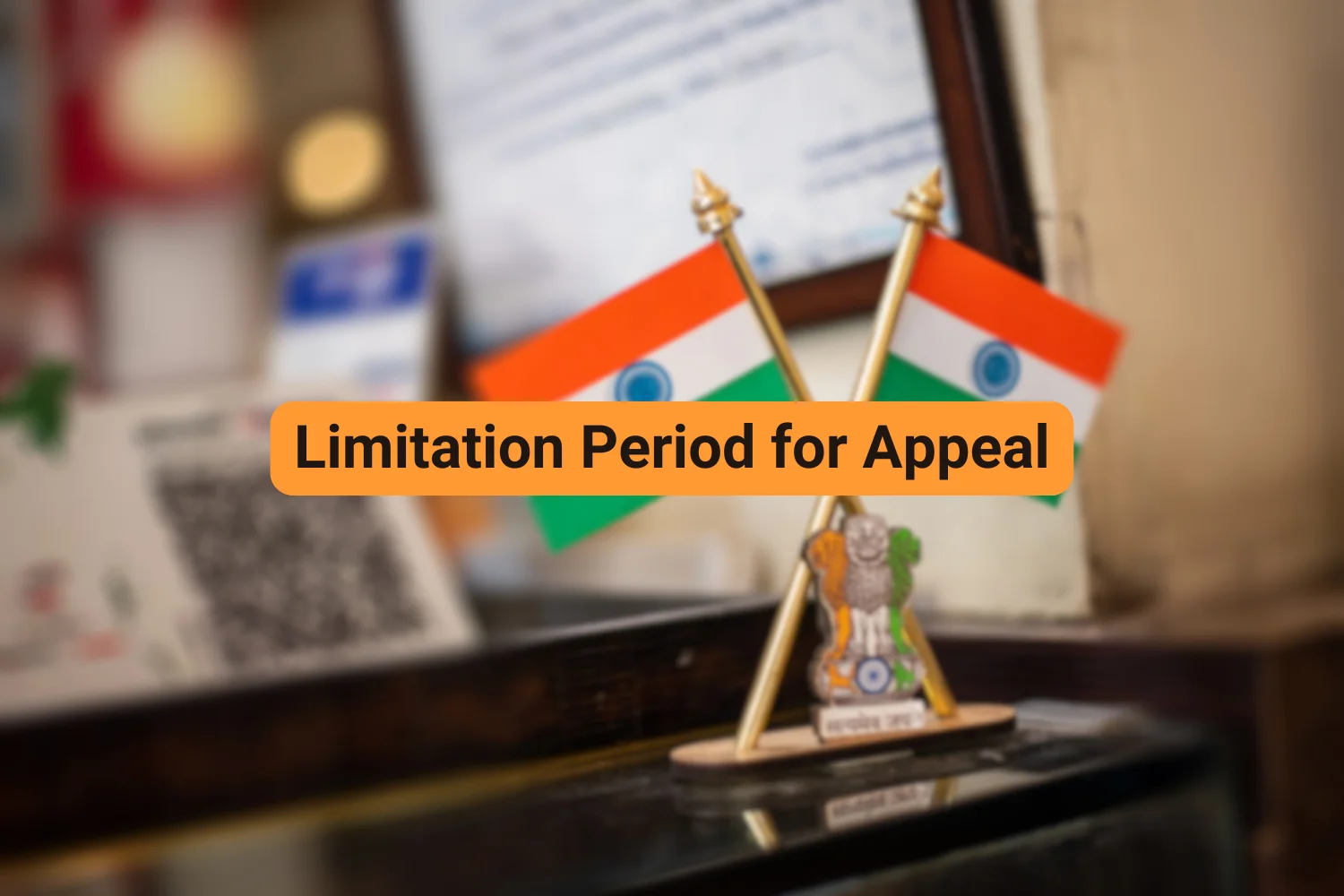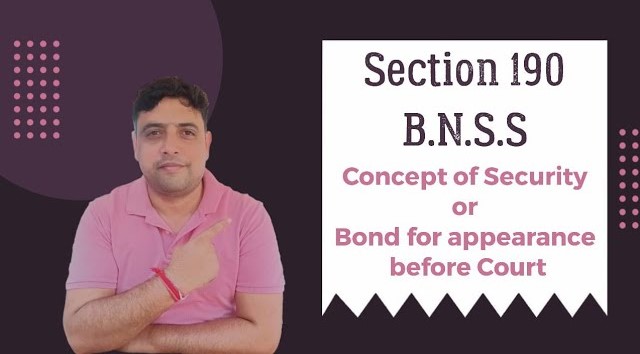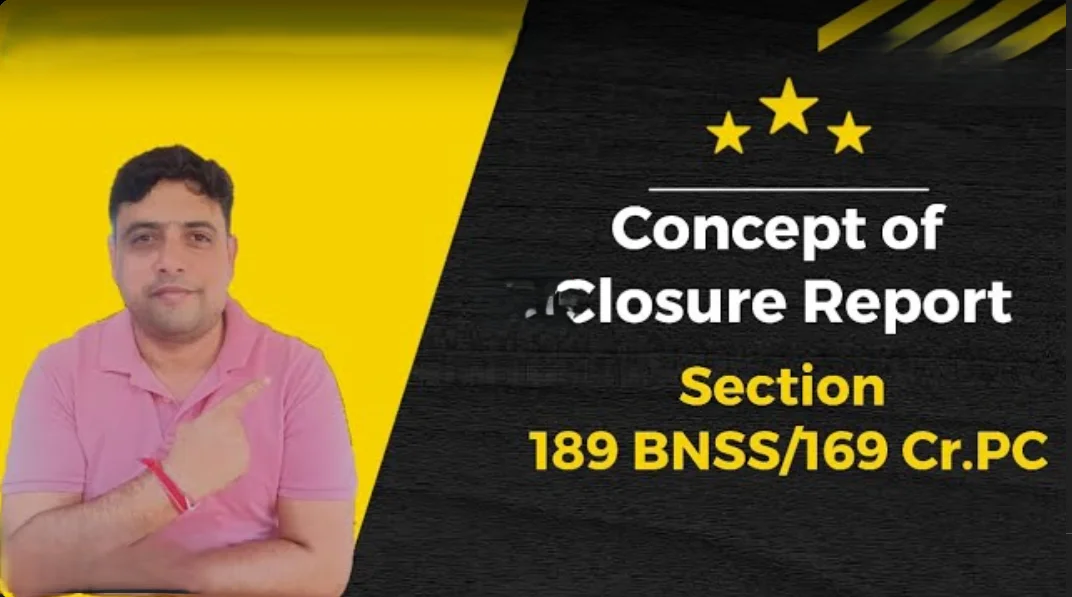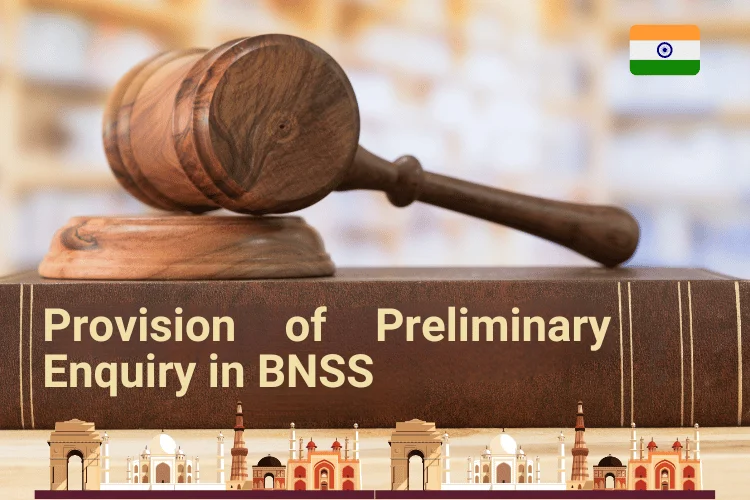When Can a Court Quash a Case ? Understanding the Legal Framework(Inherent Power) [Section 482]
INTRODUCTION
Inherent powers refer to the permanent and inseparable attributes or qualities of a court, which enable it to take actions necessary to deliver full and complete justice in a case. These powers are inalienable, meaning they cannot be transferred or taken away from the court. Through inherent powers, a court can adapt and modify its procedures to ensure justice is served, and pass orders that meet the specific needs of a case. This means that even if there is no specific law or provision, the court can still take actions to protect the rights of the parties involved and prevent injustice. Inherent powers are a crucial aspect of a court's authority, allowing it to respond flexibly and effectively to the unique circumstances of each case.
Section 482 of the Criminal Procedure Code, 1973 (CrPC) deals with the inherent powers of the High Court.
Section 482 of the Criminal Procedure Code (CrPC) preserves the inherent powers of the High Court to, according to the section -
“Nothing in this Code shall be deemed to limit or affect the inherent powers of the High Court to make such orders as may be necessary to give effect to any order under this Code, or to prevent abuse of the process of any Court or otherwise to secure the ends of justice.”
Hence this provision ensures that High Court has the authority to -
- Make necessary orders to enforce any provision of the Code
- Prevent abuse of court processes
- Secure justice
The word "otherwise" expands the High Court's powers in criminal matters.
However, it is to be noted here that this section recognizes and protects the High Court's inherent powers, but doesn't grant new powers. Further It doesn't mention inherent powers of subordinate courts.
LIMITATION
No specific time limit for filing applications under this section, but it should be done within a reasonable time frame.
PURPOSE OF POWER OF QUASHING
Section 482 of the Criminal Procedure Code (CrPC) outlines the purposes for which the inherent power of the High Court may be exercised. The three purposes are:
- To give effect to any order under the Code: The High Court may exercise its inherent power to make necessary orders to enforce any provision of the CrPC.
- To prevent abuse of the process of any court: Courts need powers to enforce its rules, suppress abuses, and defeat attempts to thwart their process. Thus, a complaint may be quashed if it's a clear abuse of the court's process, such as -
- It was made with Malafide intention or malice
- Wreaking vengeance or causing harm
- Absurd and inherently improbable allegations
- To secure the ends of justice: The High Court may exercise its inherent power to ensure justice is served, even if there is no specific provision in the Code, by taking necessary steps to prevent injustice, protect rights, or prevent unnecessary harassment.
In summary, Section 482 empowers the High Court to take necessary actions to enforce the Code, prevent abuse of the legal process, and secure justice, thereby upholding the integrity of the legal system.
Case Laws
The Supreme Court in Madhu Limaye v. Maharashtra (1977) established the following principles for applying Section 482 of the CrPC:
- Exhaustion of remedies: Inherent power should not be invoked if a specific provision exists for redressing grievances.
- Prevention of abuse: Inherent power should be used to prevent abuse of process or to secure the ends of justice.
- No contradiction with other statutes: Inherent power should not be exercised against the express provisions of any other statute.
These principles aim to ensure that the High Court's inherent jurisdiction is used judiciously, with restraint, and to promote justice, while also respecting the legislative intent and specific provisions of other laws.
Recognised Grounds for the exercise of Inherent Power :
The Supreme Court, in State of Haryana v. Bhajan Lal (1992), laid down conditions under which the High Court can use its inherent powers under Section 482. Here are the situations:
- Allegations do not constitute an offence: When the allegations, even if taken at face value, do not make out any offence against the accused.
- Allegations do not justify police investigation: When the allegations do not amount to a cognizable offence, justifying police investigation under Section 156(1) of the CrPC, except under a Magistrate's order as per Section 155(2).
- No evidence of offence: When the allegations and evidence collected do not disclose the commission of any offence.
- Allegations constitute only a non-cognizable offence: When the allegations amount to a non-cognizable offence, for which no police investigation is permitted without a Magistrate's order under Section 155(2) of the CrPC.
- Allegations are absurd or improbable: When the allegations are so absurd and inherently improbable that no reasonable person could conclude there is sufficient ground for proceeding against the accused.
- Legal bar to proceedings: When there is a legal provision that prohibits the institution or continuation of proceedings, or when there is a specific provision in the Code or statute that offers effective remedy for the grievance.
- Malafide intentions or malicious prosecution: When the criminal proceeding is carried out with malafide intentions or is maliciously instituted to spite the accused due to personal vengeance.
Section 482 of CrPC and Bail Provisions
Inherent Power Limitation: The High Court cannot use its inherent power under Section 482 of the CrPC to reopen or alter an order after disposing of a bail petition decided on merits.
Bail Granting: Bail cannot be granted solely by virtue of Section 482 of the CrPC.
Cancellation of Bail in Bailable Offence: If bail is granted in a bailable offence, there is no provision in the CrPC to cancel it. However, the High Court can cancel bail using its inherent power on grounds such as tampering with witnesses, bribery of officials, or attempts to abscond.
GUIDELINES FOR QUASHING FIRS BY HIGH COURTS UNDER SECTION 482:
In the case of Prabatbhai Bhimsinghbhai Karmur and others vs State of Gujrat 2017 Supreme Court- The apex court issued the following guidelines regarding the quashing of FIR by High Courts under section 482 .
Preservation of Powers: Section 482 preserves the High Court's inherent powers to prevent abuse of court process or ensure justice. It doesn't grant new powers, but recognizes existing ones.
Distinction from Compounding: Quashing an FIR is different from compounding an offence. Compounding follows Section 320 of the CrPC, but quashing under Section 482 applies even if the offence is non-compoundable.
Ends of Justice: High Courts must assess if quashing a complaint serves the ends of justice or prevents court process abuse.
Wide Ambit: The High Court's inherent power is broad but must be used to secure justice or prevent court abuse.
Case-by-Case Basis: Each case's circumstances determine whether quashing is appropriate when the offender and victim settle. No fixed principles apply.
Nature of Offence: Serious offences like murder or rape can't be quashed solely due to a settlement. Public interest in punishing serious offenders overrides private settlements.
Civil Disputes: Cases with a civil dispute element may be quashed if the possibility of conviction is remote and continuing would cause oppression.
Commercial Transactions: Cases stemming from commercial or financial transactions may be quashed if a settlement makes conviction unlikely and continuation is oppressive.
Economic Offences: Quashing may be declined in economic offences affecting the state's financial well-being, where the act goes beyond private disputes.
Birla Corporation Ltd. vs Adventz Investments And Holdings Ltd.
The inherent jurisdiction under Section 482 of the CrPC serves to prevent criminal proceedings from becoming a tool for harassment. If the court finds that the proceedings are being used to abuse the legal process or to pressure the accused, it can use its inherent powers to quash them.
Neeharika Infrastructure Pvt. Ltd. v. State of Maharashtra and Others 2021 SC:
The Supreme Court outlined key principles regarding the quashing of FIRs under Section 482 of the CrPC. It emphasized the police's duty to investigate cognizable offences and the court's role in not obstructing such investigations. The court should only quash FIRs in rare cases, with caution, and should not assess the reliability of allegations at the initial stage. Quashing should be an exception, considering the complementary functions of the judiciary and police. The court's inherent power aims to ensure justice and prevent abuse of the legal process, exercised cautiously under Section 482. It only needs to determine if the allegations disclose a cognizable offence, not their merit. These principles guide the court's decision-making in quashing FIRs.
Usha Chakraborty & Anr. versus State of West Bengal & Anr 2023
The Supreme Court quashed criminal proceedings, observing that they were an attempt to disguise a civil dispute as a criminal offence. It noted that the application under Section 156(3) of the CrPC was vague and lacked the essential elements of the offences alleged. Additionally, the fact that a civil suit on the same issue was pending was suppressed in the application.
STAGE AT WHICH INHERENT POWER TO QUASH FIR
When an application for quashing an FIR must be filed or at which state the court must exercise the power to quash an FIR - after the conclusion of inquiry/ investigation, when evidence is gathered, when statements are recorded.
Kaptan Singh v. State of UP2 2021
Background: The case involved an FIR against the accused under various sections of the IPC. The charge sheet was filed after recording witness statements and collecting evidence. The magistrate also took cognizance of the case.The High Court quashed the FIR without considering the evidence collected in the case and the statements recorded.
Supreme Court Observations:Stage of Proceedings Matters: If the petition under Section 482 CrPC is at the FIR stage, only the allegations in the FIR need to be considered to determine if a cognizable offence is disclosed.
Different Stage, Different Considerations: Once statements are recorded and evidence collected, the matter stands on a different footing. The Court must consider the material collected during the investigation.
No Examination of Merits: The High Court should not delve into the merits of the case as if it were conducting a trial or acting as an appellate court.
Restrained Use of Inherent Jurisdiction: The inherent jurisdiction under Section 482 CrPC should be used sparingly and carefully, as per the specific tests laid down in the section itself.
No Appreciation of Evidence: The appreciation of evidence is not permissible at the stage of quashing proceedings under Section 482 CrPC.
APPLICATION OF SECTION 482 ON INTERLOCUTORY ORDER
In criminal cases, courts issue various orders, either interlocutory (temporary) or final. Final orders are subject to revision by higher courts (Sessions Court under Section 397 and High Court under Section 401) if they are incorrect, illegal, or improper. Interlocutory orders, however, are not revisable, but the High Court can intervene under Section 482 using its inherent powers in three situations:
- To enforce any order
- To prevent abuse of court processes
- To secure justice
There's a fine distinction between interlocutory and final orders. While final orders can be revised, interlocutory orders generally cannot be revised, but may be subject to the High Court's inherent powers under Section 482.
Case Law
Achal Nath & Anr. vs Atul Nath 2023 (Delhi High Court )
The High Court's inherent powers under Section 482 of the CrPC allow it to intervene in exceptional cases, even if it means setting aside an interlocutory order, despite the bar under Section 397(2). This power is exercised to prevent abuse of process or secure the ends of justice. However, it's important to note that this power is used sparingly, only in cases where:
- A criminal proceeding was initiated illegally
- A proceeding is vexatious (brought with ill intent)
- A proceeding is without jurisdiction
As established in the landmark case of Madhu Limaye v. State of Maharashtra, the High Court's inherent powers are used judiciously, only in extraordinary circumstances, to prevent miscarriage of justice or to correct grave errors.
Other Case Laws
M/s Pepsi Food Ltd. v. Special Judicial Magistrate (1998), the Supreme Court held that a fresh investigation or re-investigation after filing of chargesheet by police can be ordered by High Court under Section 482 of CrPC to secure the ends of justice.
Sakiri Vasu v. State of U.P and Ors. (2008), the Supreme Court cautioned against entertaining Section 482 CrPC petitions if the FIR remains unregistered, advocating for the pursuit of alternative remedies like approaching police officers or the Magistrate.
Bhisham Lal Verma v. State of Uttar Pradesh and Anr.,(2023), the Supreme Court held that a second petition under Section 482 of CrPC would not be maintainable on grounds that were available for challenge at the time of filing of the first petition.
CONCLUSION: It is not good practice to quash an FIR without considering the evidence on record after the charge sheet is filed and the magistrate has taken cognizance of the case. The inherent power cannot undermine statutory dictate.

















